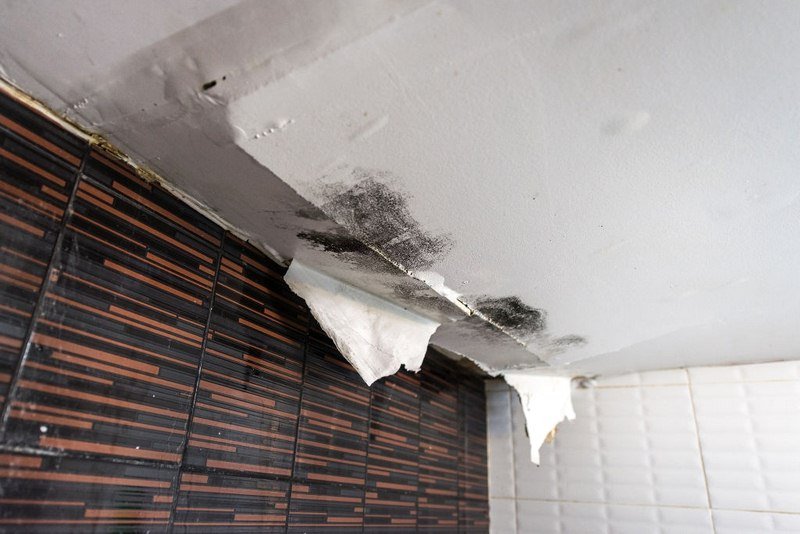Exposing the Key Triggers Behind Residential Water Leak Concerns
Exposing the Key Triggers Behind Residential Water Leak Concerns
Blog Article
What're your ideas on How to detect water leaks in your home?

Leaks not only create waste of water but can also cause unneeded damages to your house and also promote undesirable organic growth. However, water leakages could go undetected given that the majority of the pipework in our residence is concealed. By looking and comprehending for day-to-day circumstances that create leaks, you can protect your home from future leakages and also unneeded damage. Today, we will consider six leak creates that may be causing your pipelines to leak.
Instant temperature modifications.
Severe temperature modifications in our pipes can create them to expand and also contract all of a sudden. This expansion and also contraction might trigger fractures in the pipes, specifically if the temperature are below freezing. If you maintained an eye on just how your plumbing functions, it would be best. The existence of the previously discussed scenarios often indicates a high danger.
Rusty water systems
As time goes by, your plumbing system ages as well as corrosion such as rust may begin gnawing the pipes. This might be the root cause of staining or warping on your pipes. This asks for an assessment with your plumber immediately. If our plumbing system is old, think about replacing the pipelines because they are at a greater danger of corrosion than the newer designs.
Faulty Pipe Joints
Pipe joints can degrade over time, resulting in water leakages. If you have noisy pipelines that make ticking or banging sounds, especially when the hot water is turned on, your pipe joints are possibly under a great deal of stress.
Elbowing in roots
A lot of water leaks start outside the residence instead than inside it. You could notice damp patches or sinkholes in your lawn, and also that may indicate that tree origins are getting into water lines causing water to seep out.
Poor Water Connectors
At times, a leakage can be triggered by loosened hoses as well as pipes that supply your devices. Usually, moving is what creates the loose water Connections. You may locate in the case of a cleaning machine, a pipe might spring a leak as a result of shaking during the spin cycle. In case of a water links leakage, you might notice water running straight from the supply line or puddles around your appliances.
Clogged Drains
Clogged drains may be frustrating and inconveniencing, but they can sometimes end up triggering an overflow leading to break pipelines. Maintain eliminating any type of materials that may drop your drains that could obstruct them to stay clear of such aggravations.
All the above are causes of leaks however not all water leaks result from plumbing leaks; some leakages might come from roofing leakages. All leaks must be fixed right away to prevent water damages.
Leaks not only create waste of water yet can additionally create unneeded damage to your house as well as promote undesirable natural growth. By understanding and looking for everyday scenarios that create leakages, you can shield your residence from future leaks and unneeded damage. Today, we will look at six leakage creates that might be causing your pipelines to trickle.
At times, a leakage can be caused by loose hoses as well as pipes that provide your home appliances. In instance of a water connections leakage, you may see water running straight from the supply line or pools around your home appliances.
How To Check For Water Leak In Your Home
How To Check for Leaks
The average household's leaks can account for nearly 10,000 gallons of water wasted every year and ten percent of homes have leaks that waste 90 gallons or more per day. Common types of leaks found in the home are worn toilet flappers, dripping faucets, and other leaking valves. These types of leaks are often easy to fix, requiring only a few tools and hardware that can pay for themselves in water savings. Fixing easily corrected household water leaks can save homeowners about 10 percent on their water bills.
To check for leaks in your home, you first need to determine whether you're wasting water and then identify the source of the leak. Here are some tips for finding leaks:
Take a look at your water usage during a colder month, such as January or February. If a family of four exceeds 12,000 gallons per month, there are serious leaks.
Check your water meter before and after a two-hour period when no water is being used. If the meter changes at all, you probably have a leak.
Identify toilet leaks by placing a drop of food coloring in the toilet tank. If any color shows up in the bowl after 10 minutes, you have a leak. (Be sure to flush immediately after the experiment to avoid staining the tank.)
Examine faucet gaskets and pipe fittings for any water on the outside of the pipe to check for surface leaks.
Undetected water leaks can happen without the home or business owner even realizing. If you suspect a water leak, but not able to find the source. It is time to contact a professional water leak detection service, The Leak Doctor.
How To Find a Water Leak In Your Home
https://www.leakdoctor.com/blog/How-To-Check-For-Water-Leak-In-Your-Home_AE197.html

I have been very focused on Most Common Causes of Leaky Pipes and I am assuming you appreciated the blog entry. Be sure to take a moment to share this blog posting if you liked it. We appreciate reading our article about Common Water Leaks In House.
Ensure plumbing safety. Report this page